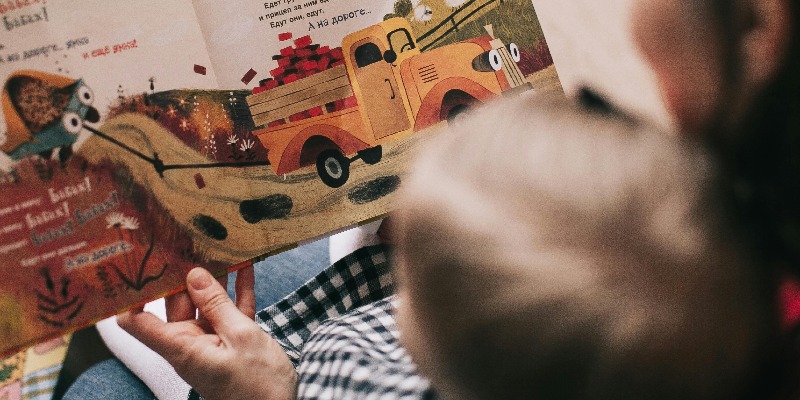10 Ways To Encourage Language Development in Toddlers
Conversing with a child aids their language development. Before you speak to your baby or toddler, try to put yourself in their shoes.
Your newborn actively listens to you from the moment they are born to learn to talk to you. Eventually, being able to listen attentively will lead to other behaviours, such as making eye contact, crying, smiling, giggling, and talking. Cries are the first way to express themselves.
When your toddler screams, it's usually for a specific reason. Have you ever noticed that babies communicate with you through various cries?
The question is, how does a toddler's screams turn into words? The ability to speak verbally and nonverbally will develop in your baby by the time they are one year old. Listed below are ten toddler speech activities that can assist in reaching important developmental milestones in language acquisition: improved listening abilities and speech.
10 Exciting Activities for Language Development
Animal Jam
Play animal songs for your toddler to learn about the names of animals. Before proceeding to wild animals, you can start with domesticated animals like dogs, pigs, chickens, cats, etc. Starting with domesticated animals is easy as they can relate to them in the house or neighbourhood. This assists your toddler in learning the names and sounds of common animals.
Taletime

Taletime is one of the most exciting ways to capture Toddlers' attention. Reading to your toddler enhances their language development, but consistent reading and engaging activities like body language, imitating animal noises or the character voices in the storybook make their tale time interesting, and they will always look forward to Taletime.
A Monkey Does What It Sees
The game of "Monkey see, monkey do" revolves around emotional expressions. Expressing one's emotions through one's face is crucial to language development. According to research, sixty to seventy-five per cent of communication consists of nonverbal cues like facial expressions.
Toddlers are fast learners. You can make more of a comical face, squeeze your lips and tongue out, smile at them, and watch them make the same expressions.
Follow in My Footsteps
Play the easy game with your toddler. Most parents wish their toddler to call their names first. Dad will say to call 'dada,' and Mom will say to call 'mama.' It looks like a competition but a fun game between parents and their toddlers. Toddler's speech usually develops around four months, which could be more than four months for some.
Do not be frustrated if your toddler is a little bit delayed in babbling a few words you say to them back to you; remember that every child's language development is different. You will soon be able to carry on a conversation with your child.
Reverb
Babies 'echo' words as they learn to speak. Making creative expressions part of everyday speech is a terrific approach to learning new words and improving language abilities.
Say "Oh no!" if your infant spills their bottle on the floor.
Research shows that including sound effects in toddlers greatly affects their language development. Make a noise, like "boing, boing," every time your infant leaps while you're holding them. Pat on their back while you rock your fussy toddler back and forth to soothe them.
Visualize This
Homemade flashcards are the cheapest tools for your toddler to identify objects. If you are a busy parent, ready-to-use flashcards with sound are also available. Visualizing will help your toddler learn the alphabet, numbers, and words.
Even though your little one won't be able to articulate the phrases, matching pictures with their corresponding words will help them learn.
Produce and Food Items
Hearing common words and phrases repeatedly helps language development in toddlers. Pretend play with plastic fruits and vegetables can aid with word recognition of common produce.
They should be watched when playing with imitation plastic food to prevent curious toddlers from eating plastic. This will help them learn to identify fruits and vegetables and remember to keep track of the fruits and vegetables to practice counting!
Face to Face
Facing your toddler is an awesome, enjoyable way to encourage language development. While your child is relaxing on the swing or play mat, join in the blabbing conversation. You can introduce parts of the body by touching your toddler's.
However, you can try the following exercise:
1. Say "mouth" while pointing to the toddler's mouth.
2. Bring the toddler's hand up to your mouth while you repeat the word "mouth."
The Little Piggie
Little Piggy rhyme: Babies seem happy when they hear sounds. Sing this rhyme during playtime with your toddler. Touch any part of your toddler's body and sing the little piggie rhyme with a smile on your face to catch the toddler's attention. You can improvise the rhyme by adding whatever words you like to make it your own, for example, adding numbers or colors to the rhyme.
Say My Name
Calling your toddler's name is one of the most helpful ways to encourage language development. The most exciting part of your toddler's name is creating a short song with their name and asking them questions while calling their name.
Additionally
Language development in toddlers is different; each child learns at their own pace. As a parent, don't be discouraged if your child isn't learning as fast as another child. Consistency is key.

How to Encourage Language Development in Toddlers
This system intricately interweaves verbal and nonverbal cues. Babies' only means of communication to let you know they need you when hungry, for diaper change, in pain, or want to be held is usually through crying.
Once they learn to communicate through crying, the possibilities for language development are endless! You must assist your infant at every stage! Be a creative parent, play, and discuss like you're speaking to an adult. Doing this will register in your child's brain and help develop their language abilities.




